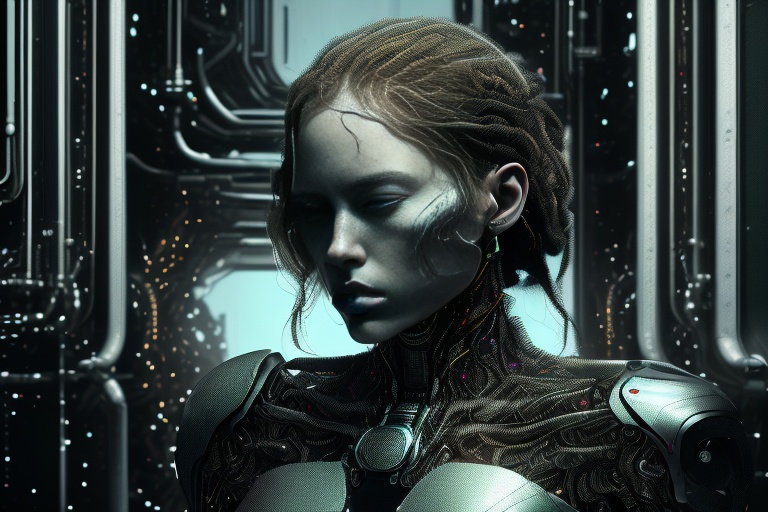Artificial Intelligence (AI): Transforming the Fabric of Society and Economy
Artificial Intelligence (AI): Transforming the Fabric of Society and Economy
Artificial intelligence (AI) has seamlessly transitioned from the realm of science fiction to an integral part of our daily lives and the backbone of many industrial processes. Known for enhancing efficiency, AI's integration into various sectors has sparked a relevant and ongoing dialogue about its influence on the future of work and the broader economic landscape. This comprehensive exploration dives into the potential impacts of AI, juxtaposes the capabilities of AI and human intelligence, and unpacks the pressing ethical considerations related to AI's rise.
Understanding Artificial Intelligence
At its core, AI represents computer systems designed to mirror human cognitive functions like reasoning, learning, and problem-solving. This imitation stems from human cognition—the blend of research, analysis, logic, and keen observation, which can be replicated to some extent in machines. These intelligent systems can tackle tasks ranging from straightforward, repetitive activities to complex, multifaceted problems. Diverse sectors, including robotics, control systems, computer vision, scheduling, and data mining, have been revolutionizing, thanks to AI's contributions.
Defining Human Intelligence
Human intelligence is an intricate construct shaped by genetics, social interactions, and environmental stimuli. It describes our ability to understand and manipulate our surroundings using acquired knowledge. Beyond academic or technical capabilities, human intelligence reflects in the nuanced understanding of societal dynamics and geopolitical strategies, which often require an intricate grasp of human emotions and intentions.
Comparing AI and Human Intelligence
Delving into the differences between AI and human intelligence requires careful consideration of several aspects of cognitive abilities:
Evolution: Human intelligence has evolved through millennia of adaptation, learning from social interactions and survival challenges. AI, comparatively, is a product of rapid technological advancements shaped by human programming and design.
Essence: The essence of human intelligence lies in its inherent emotional complexity and adaptability. In contrast, AI functions on logical processing and data-driven decision-making, with limited ability to handle the unpredictability inherent in human emotions and relationships.
Functionality: AI excels in performing defined tasks with precision and speed unattainable by humans. Human intelligence, however, is more versatile—able to conceptualize, create, and navigate complex emotional landscapes.
Pace of Operation: While AI can process and analyze data at unprecedented rates, human cognitive processes take relatively longer, owing to the need for contextual understanding and critical thinking.
Learning Ability: AI systems learn through data ingestion and pattern recognition—often requiring vast amounts of data to master a skill. Humans, by nature, can learn from minimal data, abstract concepts, and experiences, applying this knowledge flexibly across different contexts.
Decision Making: AI's decision-making process is purely data-driven, which can be advantageous for objectivity and consistency. Human decision-making, however, is enriched by experience, intuition, morality, and ethical judgment.
Perfection: Seeking perfection, AI can repeatedly perform specific tasks without error. The human journey towards perfection is marked by trial, error, learning, and personal growth.
Adjustments and Flexibility: AI can adjust to programmed scenarios but may falter outside predefined conditions. Human intelligence is built to adapt, creating innovative solutions to unforeseen challenges.
While comparing the two intelligences, it's necessary to recognize the unique capabilities and limitations of each. It is not a competition but rather a question of how these intelligences can complement each other to address complex challenges.
The Future of AI in the Workforce and Economy
As AI proliferates, its imprint on the job market and economic structure grows increasingly significant. Automated systems have begun reshaping industries, from manufacturing to services, potentially altering the skills in demand and creating new professional avenues. It is imperative to understand and anticipate these shifts to better prepare for a future where AI and humans collaborate in the workforce.
Ethical Considerations of AI's Ascendancy
The burgeoning domain of AI beckons ethical introspection. Issues such as data privacy, algorithmic biases, and the potential for augmented inequality must be addressed. Safe, fair, and inclusive development of AI technologies mandates a robust dialogue across all sectors of society to establish ethical guidelines and governance frameworks.
This article is but a prelude to a deeper investigation into AI's impact on various industries and their future landscapes. Insights garnered from this discourse are vital for anyone interested in the dynamically evolving intersection of technology, economy, and society. The trajectory of AI remains both an exciting prospect and a complex challenge, deserving of our discerning attention and thoughtful action.
Information for this article was gathered from the following source.




